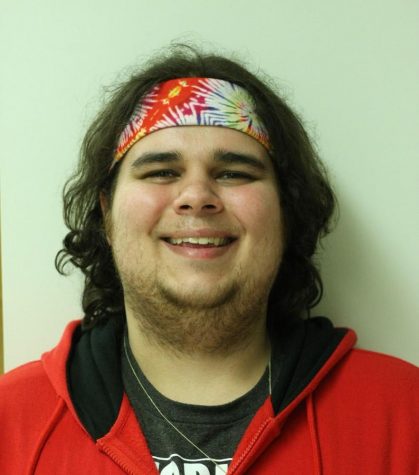Penn’s folly
January 20, 2016
In his recent Rolling Stone article that contained an interview with Joaquín “El Chapo” Guzmán, actor Sean Penn admitted to relieving a “flatulence” in front of the head of the Sinaloa Cartel.
That mention is quite fitting for Penn, whose turd-of-an-article has drawn criticism and chuckles from the general public.
El Chapo, who was captured in the early hours of Jan. 8 after escaping maximum-security prison for the second time in his homeland of Mexico, is the 21st century version of Pablo Escobar–a larger-than-life drug lord whose money and power is mirrored by that of their respective home nations.
The man is responsible for 80% of the narcotics flowing through the streets of Chicago and his drugs can be found anywhere from western Canada to the Big Apple. An interview with El Chapo is arguably the most sought after interview an American journalist can have.
And before a single word is given from the man, Penn spent thousands of words incoherently rambling and attempting to connect a war on drugs thesis to El Chapo in a fashion that would give your drunk uncle on Thanksgiving a run for his money.
“At 55 years old, I’ve never learned to use a laptop. Do they still make laptops? No f—— idea!”
Mr. Penn, I can assure you, as someone who has set foot in a Best Buy and turned on a television in the past six months that yes, they still make laptops.
“I understood that whatever else might be said of him, it was clear to me he was not a tourist in our big world.”
What does that even mean? To quote Mark Twain, “it is better to keep your mouth closed and let people think you are a fool than to open it and remove all doubt.”
After a few thousand words, and in my third attempt at finishing the article, I finally made it to Penn’s encounter with El Chapo. At last, I had been able to work my way to the best portion of the article–a portion that should have not been buried under a ton of sludge–the interview.
False alarm.
Penn met with El Chapo to set up a future interview. So his genius idea was to meet up with a man whom both the Mexican and United States governments have spent countless time and resources looking for on multiple occasions for one interview.
Brilliant.
Of course, after their first meeting, Mexican authorities were able to key in on El Chapo and eventually capture him, with the attorney general of Mexico saying that Penn’s involvement was “essential” in his capture.
Prior to the capture, Penn was able to get his interview. He settled for a video interview where the drug lord answered pre-prepared questions from Penn in a video. No chance for follow-ups or explanations of answers. I wasted so much time and energy to read one of the most underwhelming interviews ever.
I cannot hate on Penn for even being in position to do this. I would do a lot of things, most of them illegal, for a chance to meet El Chapo. But as a “journalist,” Penn had the responsibility to conduct a strong interview and not squander the opportunity.
Similarly, I agree that the “war on drugs” has been an abominable failure, but if you’re going to make that point in a discussion with the largest kingpin of our time, then at least string your thoughts together coherently.
In a 60 Minutes interview that aired Sunday, Penn said he is sad about the state of journalism in America, and how journalists think they know more than they do, while Penn knows exactly how much he knows, and that it is more than others.
So not only is Penn your drunk uncle, now he is also your “woke” cousin who ironically tattooed the Illuminati’s all-seeing eye on his back.
But today, the reason for this painful article dawned on me. Penn takes pride in his “experiential” journalism, drawing inspiration from the gonzo-style journalism made famous by legendary Hunter S. Thompson.
It is clear that Penn tried channeling his inner-Thompson. And in clear Thompsonesque fashion, he decided to eat a few too many tabs of acid before penning his thoughts, and this article was the result.
And because of this, Penn didn’t need an interview with America’s favorite drug lord to remind us that drugs can be bad. He just needed to write again.







